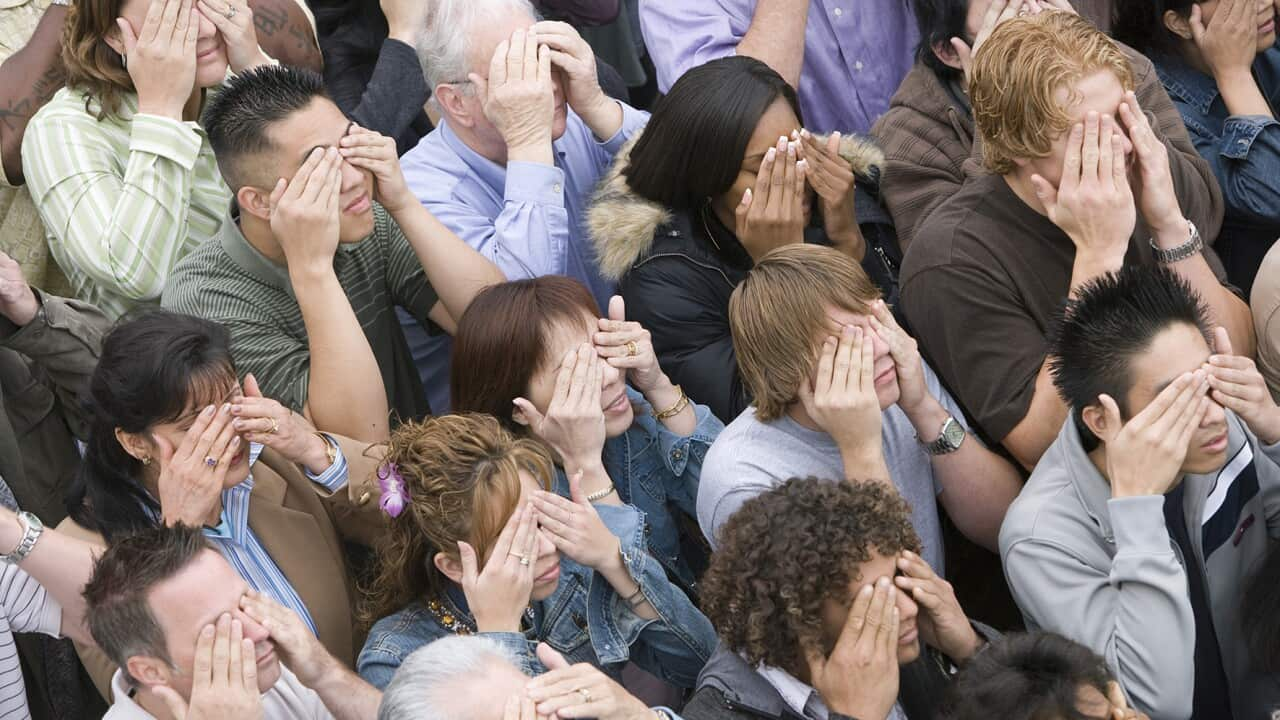Last week, Australian politicians marked Harmony Day with tuneless noises. The same government who so nobly sets aside a day for cross-cultural understanding used that same day to go on, and on and on, about how crucial it was to weaken the protections afforded to Australians in Section 18C of the Racial Discrimination Act.
It was peculiar to see leaders declare both that there was a need for greater social cohesion and a need to meet the costs of the “free speech” that could ruin it. This inconsistency reminded me of two things. First, of myself on the first day of my period when I nearly always experience the simultaneous urge to slap and to hug any human I meet. Second, of the truth that we cannot leave the matter of harmony up to politicians.
No. This is a bunch of kids so removed from the reality of everyday racism and everyday speech, they think it’s okay to spend salaried hours arguing about a verb in a rarely used piece of legislation. Let’s leave these people to their tedious debate about the rights of, let’s face it, well-paid columnists and get on with the social cohesion business ourselves.
There have been plenty of thinkers to offer their ideas on how to build a more unified society. The world’s most influential faiths and philosophies basically come up with this: be nice to each other. See all people as your neighbour. Treat others as you yourself would prefer to be treated.
This sounds lovely. Unfortunately, it’s never really worked. We can keep urging others to peel back the layers of prejudice and allow the true humanity of all to be gloriously revealed for another thousand years. But, we should not expect this strategy to be any more effective in the future than it has been in the past.
The whole “see your fellows as humans with equal rights” thing is, obviously, an idea to endorse. It is just not something you can enforce, for a range of reasons which start but do not end with the simple fact that merely staying alive in the world as it is requires that we do not think of the humanity of others. If, for example, I was to look at the true humanity of all the things that surround me—this computer made by overworked Chinese factory workers who fall asleep at their work stations, this cheap t-shirt made by an impoverished textile worker in Bangladesh, this piece of lunchtime fruit picked by someone in Queensland with a very sore back—I would be paralysed with grief. I need a certain amount of alienation, even of denial, to survive present conditions.
To see Goodes as spectacularly human is the easiest thing in the world, in fact, a great effort to deny the humanity of others, which is probably why racist people are always in such a bad mood.
Alienation can be necessary, even useful. I learned this while watching the football player Adam Goodes on TV in a Fitzroy pub. The AFL star choked back tears during a press conference that followed an infamous racist sledging, and I was starting to cry a bit myself when I heard, “Don’t be a sook. It only gets in the way of change.” These words were spoken to me by a drinking buddy, himself responsible for a great deal of anti-racist change.
To truly see the humanity of others comes very naturally. To see Goodes as spectacularly human is the easiest thing in the world, in fact, a great effort to deny the humanity of others, which is probably why racist people are always in such a bad mood.
But, there’s another, more passionate kind of alienation to which we can commit ourselves. Better than drowning in the paralysing ecstasy of compassion for others—remember, being a sook gets in the way of change—is to think like this: everyone deserves a good life, whether I see them as human or not.
But, there’s another, more passionate kind of alienation to which we can commit ourselves.
We’ve come to a limit in history where very few of us now enjoy what could be called good lives. There is a crisis of housing affordability, one of underemployment and another one of private debt. Most Australians are too busy managing these problems to enjoy a good life. But, we must not be so busy that we can’t recognise that each of us deserves a good life, and it is only in our unified demand for that we can create a society in which a true harmony is possible.
Let’s not worry about seeing each other as human or in shedding tears for each other’s misfortune. Let’s not leave the important matter of the future up to politicians, who are content to argue about verbs. Maybe, let’s see each other as little social units, each deserving of a good life. Through this alienated separation, we can begin to unite.





